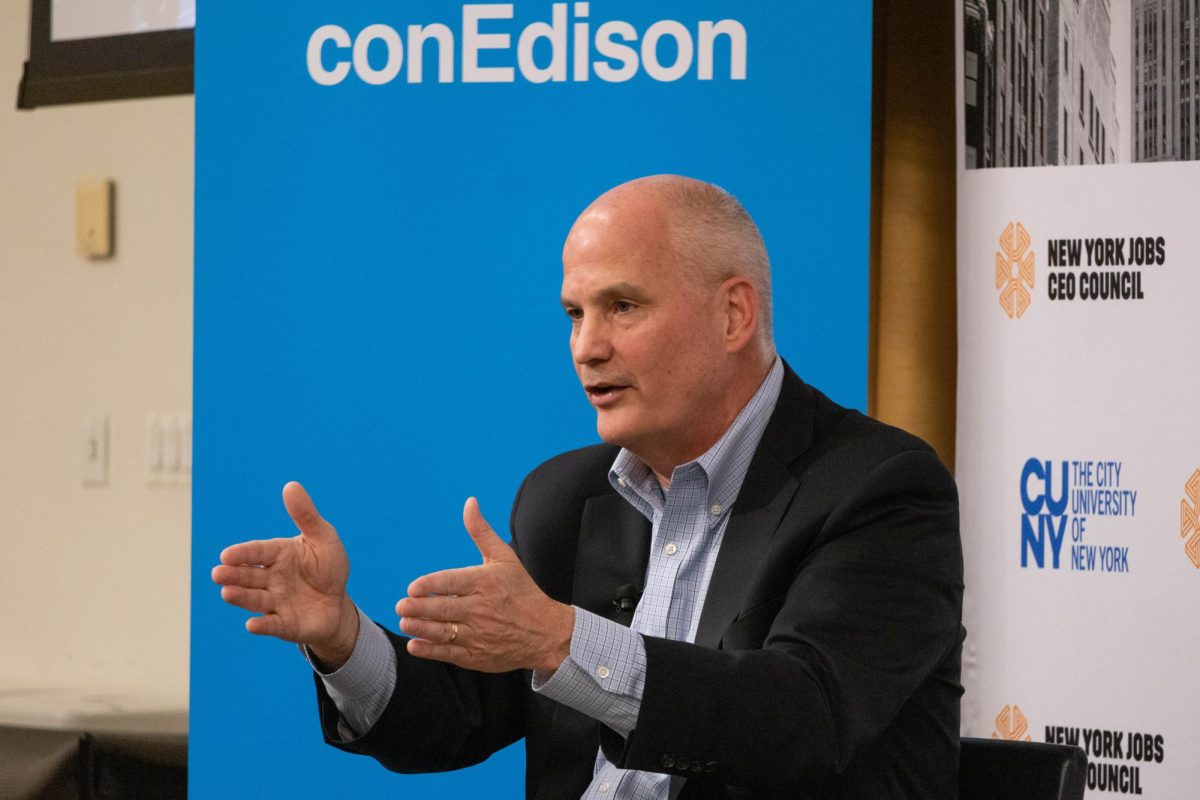New Yorkers could soon see their utility bills jump by double digits, as a plan to raise gas and electricity rates may take effect next year.
Con Edison, a supplier of energy to parts of New York City and Westchester County, has proposed for the state to increase electric bills by 11.4% and gas bills by 13.3%. The revenue from the rate hikes is intended to fund infrastructure investments, all while complying with NYC’s 2019 climate law.
But the plan has drawn criticism from community members and Queens lawmakers, who argue it would make already high utility costs even more unaffordable for Con Edison’s 3.6 million electric customers. Gov. Kathy Hochul also requested the Department of Public Service, which is responsible for regulating companies, to reject the proposed rate hikes.
In an interview with The Ticker, Con Edison CEO Tim Cawley said the company aims to provide customers with the best value while aiming to keep costs affordable.
“The first piece is we’ve got to be really great stewards of our customers’ dollars — that’s using data and technology and work process and efficiencies to make sure that every dollar we spend is spent wisely,” Cawley said.
Cawley credited the company’s affordability programs for ensuring that customers only pay what they can afford, aiming that they pay no more than 6% of what they earn. He added that energy efficiency programs assure customers save money when less energy is produced.
With severe weather events driving up energy costs, affordability remains a top concern as state and city stakeholders consider rate hikes that could fund broader investment initiatives.
The bulk of the investments will go toward a substation complex in Queens, a clean-energy hub in Brooklyn and an electrification program for multi-unit buildings.
These initiatives — whether that’s building a substation, which requires obtaining permits, or transitioning Port Authority buses to electric — could take five to 10 years, Cawley said, citing each development project’s unique needs.
These projects align with the state’s 2019 Climate Leadership and Community Protection Act, which aims at reducing fossil fuel reliance and transitioning to zero-emission electricity by 2040.
The rate hikes would support the wide transition to electricity, which will come at a hefty cost to the company and its customers. Con Edison said it needs an additional $1.6 billion in electric revenue and $440 million in gas revenue to fund its initiatives.
Property taxes are the biggest factor driving up electricity prices for the utility and the second largest for gas. The company estimates that customers will pay $3.2 billion in property taxes by 2026.
This isn’t the first time the utility company has raised prices. The state approved a 13% rate increase over three years in 2020, followed by another 12% hike over three years in 2023. Like the current proposal, these increases were intended to fund investments.
As a natural monopoly, Con Edison cannot profit from the energy it supplies under state law, so its earnings come from investments. The company also doesn’t produce all its power, meaning it has no control over the cost of energy, but it does control the prices customers pay.
The rates are regulated by the state’s Department of Public Service. A spokesperson for the department stated that it would explore ways to ease the burden on customers if the state approves the proposal, though it cannot control or set the rates. That responsibility falls to the state Public Service Commission, which follows a multi-stage process involving input from various stakeholders, including environmental groups.
As the proposal could take months to near approval, many point to the Home Energy Assistance Transition Act, otherwise known as the NY HEAT Act, as a permanent way to maintain affordability while reducing reliance on gas. If passed, the act would regulate the expansion of the state’s outdated gas system and cap utility bills at 6% of household income.
The state Senate passed the act in 2024 and reintroduced it in February, with hopes that the Assembly will approve it so it can become a law.
New York State Sen. and Finance Committee Chair Liz Krueger voiced support for the NY HEAT Act amid Con Ed’s rate hike announcement.
“We are glad to see Governor Hochul taking Con Ed’s most recent rate hike proposal seriously, and urging action from the Public Service Commission on rising rates across the state,” Krueger said in a press release.










